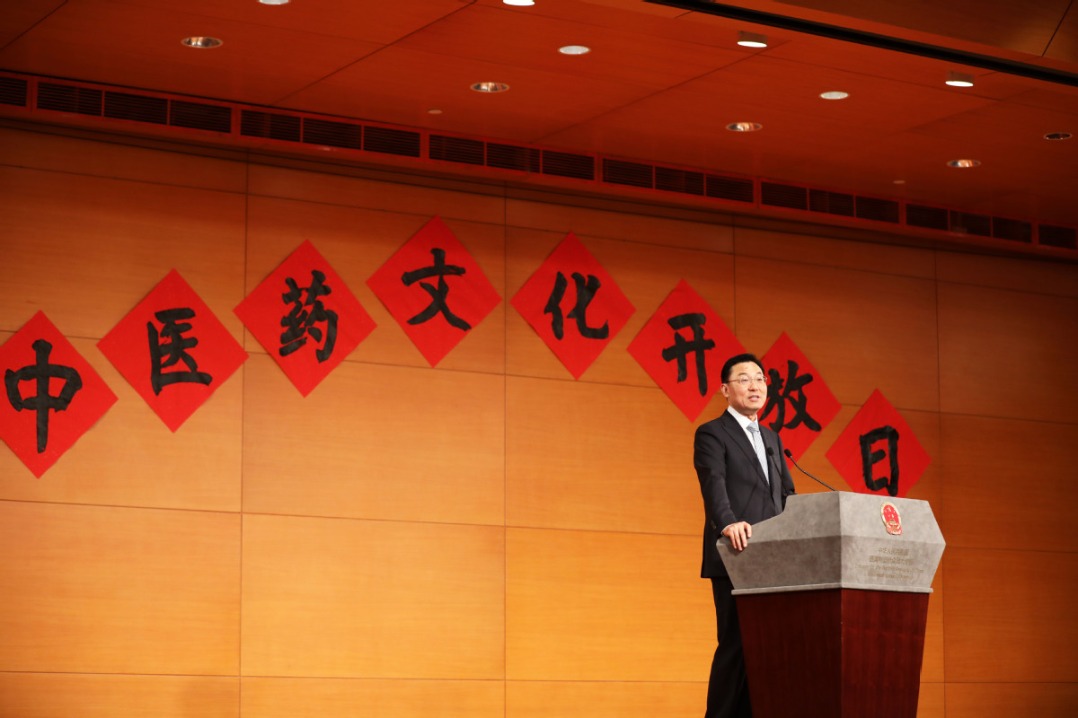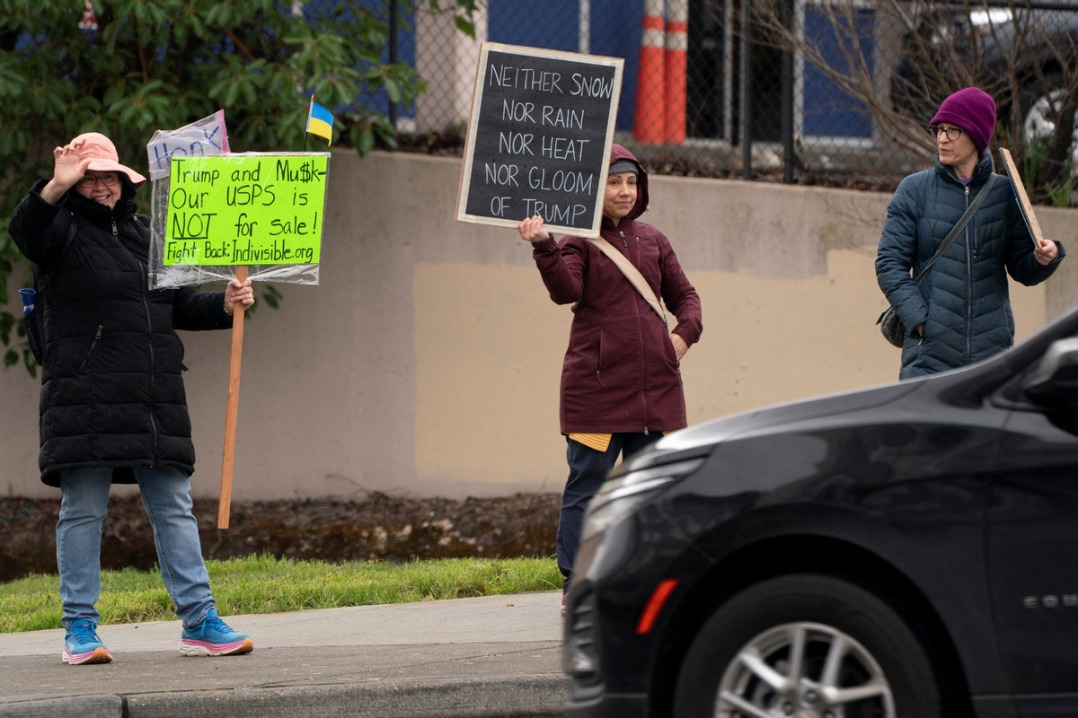Purdue Pharma makes tentative deal to settle


Purdue Pharma, maker of the opioid painkiller OxyContin, and the company's owners, the Sackler family, have reached a tentative agreement with 23 states and thousands of local governments to settle lawsuits stemming from the nationwide US drug epidemic.
The proposed deal will cost the company and its billionaire owners, the Sackler family, between $10 billion and $12 billion, according to multiple reports. That includes $3 billion from the family's personal fortune, according to The Washington Post.
The drug company and its owners faced about 2,500 lawsuits filed by nearly every state as well as cities, counties and Native American tribes charging that the company fueled the use of the addictive drug through aggressive and misleading advertising.
Under terms of the proposed settlement, the Sacklers would give up their interest in the company and trustees would operate the company through a bankruptcy hearing.
In addition to the $3 billion to be paid by the Sackler family in the next few years, it could add another $1.5 billion depending on the amount raised from the sale of Mundipharma, a company the family also owns that sells drugs outside the US.
Purdue could file for bankruptcy this Sunday and will urge other states to join the settlement. But the deal could fall apart if a bankruptcy judge decides it doesn't have enough support from creditors, The Wall Street Journal reported Wednesday.
Arizona Attorney General Mark Brnovich said the deal covers about half the states that are suing the company.
Purdue, based in Stamford, Connecticut, has denied that its marketing of OxyContin, launched in 1996, contributed to the opioid epidemic. However, the growing number of lawsuits has pressured the Sackler family, which has donated to museums and the arts worldwide, to reach an out-of-court settlement.
The Sacklers are one of the richest families in the US, with an estimated net worth of $13 billion, according to Forbes magazine. The lawsuits allege the family put profit above health by aggressively marketing OxyContin, the brand name for oxycodone, knowing it could lead to addiction and death by overdose. Purdue Pharma had offered up to $12 billion to settle pending state and federal lawsuits.
Between 1999 and 2017, about 702,000 people in the US died from drug overdoses, including 399,000 from of all types of opioids, including oxycodone, heroin and synthetics such as fentanyl.
In 2017, 68 percent of the 70,000 people who died from a drug overdose, or 47,600, were killed by a prescription or illicit opioid, the US Centers for Disease Control (CDC) reported.
OxyContin is a brand name for oxycodone, a prescription opioid pain reliever. First synthesized in 1916, the drug wasn't available in the US until 1939. OxyContin is a time-released formula of the drug and provides up to 12 hours of relief to patients who suffer chronic pain from surgery, cancer, injury or severe arthritis.
Oxycodone creates a euphoric high, which can lead some users with a prescription to crave the drug and others to obtain it illegally. It is used in other pain medications, including Percocet, a mixture of oxycodone and acetaminophen. The latter drug is available without a prescription. Acetaminophen is an analgesic used to treat headaches or fever and used as an alternative to aspirin.
The CDC said use of opioid painkillers in the US rose steadily starting in 2006 and peaked in 2012 at more than 255 million prescriptions — a rate of 81.3 per 100 persons. The overall rate of prescribing oxycodone declined from 2012 to 2017, the most recent year comprehensive data was collected, falling to a total of 191 million prescriptions, or 58.7 per 100 persons.
Nevertheless, the federal agency estimated the cost of prescription opioid misuse at $78.5 billion a year, including the cost of healthcare, lost productivity, addiction treatment and law enforcement.
Use of oxycodone varies by region. Prescription painkiller sales per person are about three times higher in Florida, which has the highest usage rate nationwide and a large population of retirees, than in Illinois, which has the lowest. More men than women die of overdoses from prescription painkillers, and middle-aged adults have the highest rate, although deaths occur among teenagers and young adults who illegally obtain the drug and use it recreationally without a prescription.
The number of people abusing opioids is lower in rural areas, but the death rate is higher than in cities. The disparity in death rates appears to be a function of proximity to emergency care. Whites, Native Americans or Alaska Natives are more likely to overdose than other demographic groups, the CDC said.
In 2017, states with the highest death rates due to drug overdoses included West Virginia, Pennsylvania and Kentucky. Washington DC also ranked high, the CDC reported.
Other manufacturers of opioid drugs have already settled, including a state opioid trial in Oklahoma. But the tentative deal struck with Purdue Pharma is the first "global" settlement. It was negotiated by a team of lawyers handling the cases in federal court as well as lawyers for the states.
Much of the total amount in the proposed settlement depends on the future sale of OxyContin, Purdue's signature drug at the center of the controversy. Some states have declined to join the proposed settlement because they question its valuation.
New York, Connecticut and Massachusetts have not joined the tentative deal and have urged the family to sell the company immediately and stop making drugs for international markets.
"Connecticut has not agreed to any settlement," Willian Tong, the state's attorney general, said in a statement. "Our position remains firm and unchanged and nothing for us has changed today. I cannot predict whether Purdue will seek bankruptcy, but all I can say is we are ready to aggressively pursue this case wherever it goes — whether it is in the Connecticut courts or through bankruptcy."
The company is separately negotiating with the US Justice Department to resolve criminal and civil probes, the Journal reported last week.
The apparent deal comes six weeks before the start of the first trial before a federal judge in Cleveland, Ohio. The judge has recently ruled against the company in several pretrial motions.
Several of the states that have named the Sacklers as defendants allege that the family has drained billions of dollars from the company since 2007, the year Purdue paid a $635 million fine to settle federal criminal and civil cases charging that it has improperly branded OxyContin.
The New York attorney general has filed subpoenas in an attempt to find out where the family deposited its money, suggesting possible legal action to recover all or some of it.
































